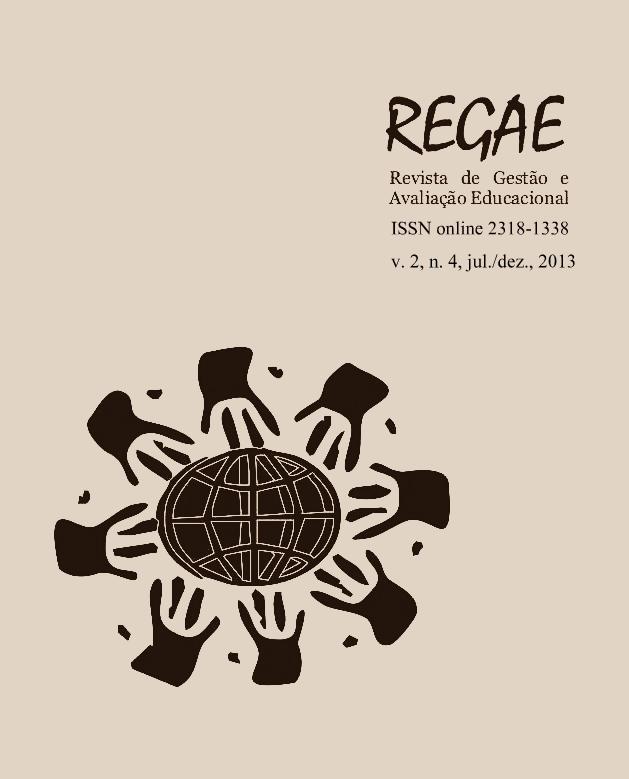Environmental education: policy and practice
DOI:
https://doi.org/10.5902/2176217111716Abstract
This paper seeks to uncover the realities behind the integration, or lack thereof, of Environmental Education into the core science curriculum as well as suggestions to successfully integrating it. There is an urgent need for transformative environmental education and action-based environmental participation, concerns also echoed by the international community. The schools should be vested with an environmental mission about/for/in the environment. Educational legislation for science education and practice are bridged by a myriad of difficulties to successfully integrating it (Hart, 2002; Metz et al., 2010). Effective strategies for integration as well as teachers’ preparedness and professional development are among the steps towards successful integration.
Key-words: Environmental education, science education, knowledge mobilization, scientifically-literate citizens, teachers’ professional development.
Downloads
References
BARRETT, S. E. and PEDRETTI. Contrasting orientations: STSE for social reconstruction or social reproduction? School Science and Mathematics Journal. 106 (5), 2006, p. 237-247.
CAMPBELL, T; MEDINA-JEREZ, W; ERDOGAN, I; ZHANG, D. Exploring science teachers’ attitudes and knowledge about environmental education in three international teaching communities. International Journal of Environmental and Science Education. 5 (1), 2010, p. 3-29.
EDITORIAL: Environmental education research: will the ends outstrip the means? Environmental Education Research, 15 (2), p. 129-153.
FERKANY, M; WHYTE, K. P. The compatibility of liberalism and mandatory environmental education. Theory and Research in Education, 11 (1), 2013, p. 5-21.
GOUGH, A; SHARPLEY, B. Toward effective teaching and learning: stories of primary schools’ environmental science interest and action. Educational Action Research, 13 (2), 2005, p. 191- 211.
HART, P. Environment in the science curriculum: the politics of change in the Pan-Canadian science curriculum development process. International Journal of Science Education, 42 (11), 2002, p. 1239-1254.
JOHNSTON, J. Transformative environmental education: stepping outside the curriculum box. Canadian Journal of Environmental Education, 14, 2009, p. 149- 195.
HODSON, D. Time for action: science education for an alternative future. International Journal of Education, 25(6), 2003, p. 645-670.
HODSON, D. The History, traditions and values of science. In: Teaching and learning about science: language, theories, methods, history, traditions, and values. Rotterdam: Sense Publishers, 2009.
METZ, D; MCMILLAN, B; MAXWELL, M; TETRAULT, A. Securing the place of educating for sustainable development within existing curriculum frameworks: a reflective analysis. Canadian Journal of Environmental Education, 15, 2010, p. 150- 169.
MICHAEL, P. M; PATTILLO, K. K; MITCHELL, D. B; LUTHER, R. A. Lessons from the tree that owns itself: implications for education. International Journal of Environmental and Science Education. 6 (3), 2011, p. 293-314.
MOLSEMI, J. I; CAPPS, K. A; JOHNSON, M.S; MAUL, J; MCINTYRE, P. B; MELVIN, A. M; VADAS, T. M; VALLANO, D. A; WATKINS, J. M., AND WEISS, M. Training tomorrow’s environmental solvers: an integrative approach to graduate education. BioScience, 59(6), 2009, p. 514- 521.
PUK, T; MAKIN, D. Ecological consciousness in Ontario elementary schools: the truant curriculum and the consequences. Applied Environmental Education and Communication, 5 (4), 2006, p. 269-276.
POULIOT, C. Using the deficit model, public debate model and co-production of knowledge models to interpret points of view of students concerning citizens’ participation. In Socioscientific Issue. International Journal of Environmental & Science Education, 4 (1), 2009, p. 49-73.
STEELE, A. Beyond contradiction: Exploring the work of secondary science teachers as they embed environmental education in curricula. International Journal of Environmental & Science Education. 6 (1), 2010, p. 1-22.
STEVENSON, R. B. Schooling and environmental/sustainability education: from the discourses of policy and practice to discourses of professional learning. Environmental Education Research, 13 (2), 2007, p. 265-285.
WELLINGTON, J. What is science education for? Canadian Journal of Science, Mathematics and Technology Education, 1 (1), 2001, p. 23-38.
YUEH, M.C.M; COWIE, B. What influences the emergence of a new subject in schools? The case of environmental education. International Journal of Environmental Education. 5 (3), 2010, p. 265- 285.
Downloads
Published
How to Cite
Issue
Section
License
Authors keep copyright and concede to the magazine the right of first publication, with the work simultaneously licensed under the Creative Commons Attribution 4.0 International, non-commercial license with no derivative work, which allows to share the work with no author recognition and initial publication in this magazine.
Authors has authorization to overtake additional contracts separately, to distribute a non-exclusive version of the work published in this magazine: For example: to publish in an institutional repository or as a chapter of a book, with authorial recognition and initial publication in this magazine.
Authors are allowed and are encouraged to publish and distribute their work online. For example: in institutional repositories or in their own personal page – at any point before or during the editorial process, because this can result in productive changes, as well as increase the impact and the mention to the published work.






